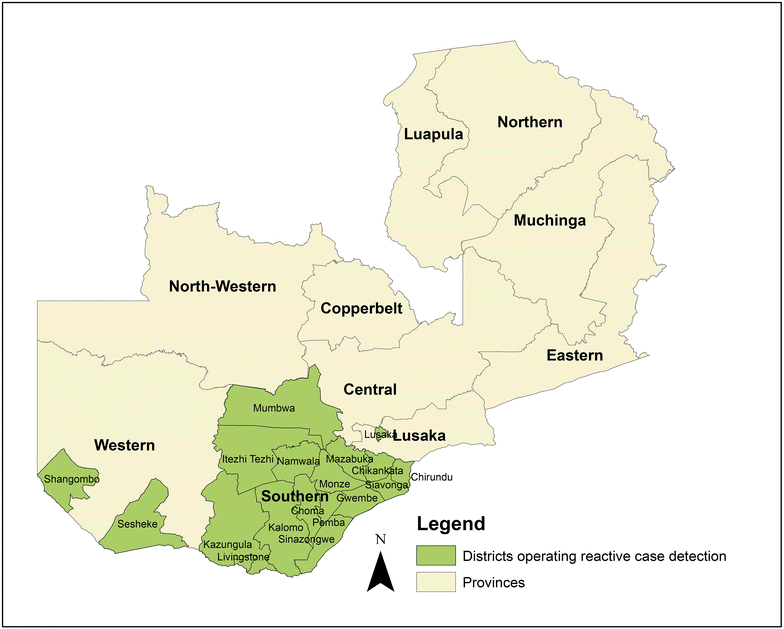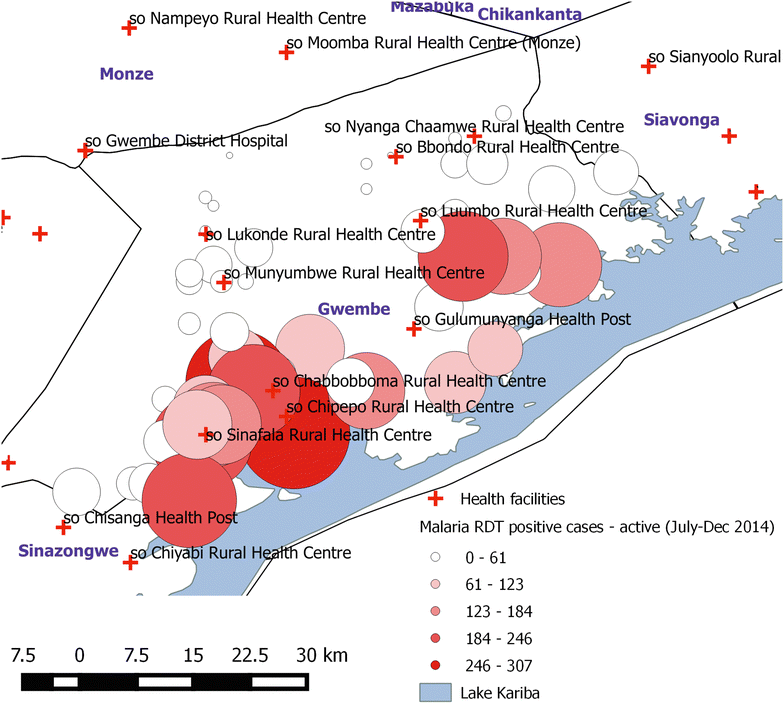Malaria surveillance in low-transmission areas of Zambia using reactive case detection
- PMID: 26586264
- PMCID: PMC4653936
- DOI: 10.1186/s12936-015-0895-9
Malaria surveillance in low-transmission areas of Zambia using reactive case detection
Abstract
Background: Repeat national household surveys suggest highly variable malaria transmission and increasing coverage of high-impact malaria interventions throughout Zambia. Many areas of very low malaria transmission, especially across southern and central regions, are driving efforts towards sub-national elimination.
Case description: Reactive case detection (RCD) is conducted in Southern Province and urban areas of Lusaka in connection with confirmed incident malaria cases presenting to a community health worker (CHW) or clinic and suspected of being the result of local transmission. CHWs travel to the household of the incident malaria case and screen individuals living in adjacent houses in urban Lusaka and within 140 m in Southern Province for malaria infection using a rapid diagnostic test, treating those testing positive with artemether-lumefantrine.
Discussion: Reactive case detection improves access to health care and increases the capacity for the health system to identify malaria infections. The system is useful for targeting malaria interventions, and was instrumental for guiding focal indoor residual spraying in Lusaka during the 2014/2015 spray season. Variations to maximize impact of the current RCD protocol are being considered, including the use of anti-malarials with a longer lasting, post-treatment prophylaxis.
Conclusion: The RCD system in Zambia is one example of a malaria elimination surveillance system which has increased access to health care within rural communities while leveraging community members to build malaria surveillance capacity.
Figures




References
-
- Steketee RW, Sipilanyambe N, Chimumbwa J, Banda JJ, Mohamed A, Miller J, et al. National malaria control and scaling up for impact: the Zambia experience through 2006. Am J Trop Med Hyg. 2008;79:45–52. - PubMed
-
- Bennett A, Yukich J, Miller JM, Vounatsou P, Hamainza B, Ingwe MM, et al. A methodological framework for the improved use of routine health system data to evaluate national malaria control programs: evidence from Zambia. Popul Health Metr. 2014;12:30. doi: 10.1186/s12963-014-0030-0. - DOI - PMC - PubMed
MeSH terms
Substances
LinkOut - more resources
Full Text Sources
Other Literature Sources
Medical

